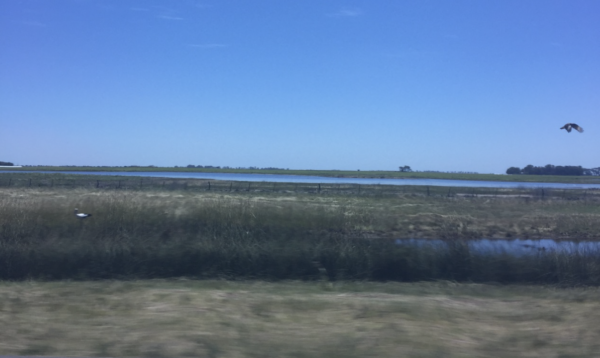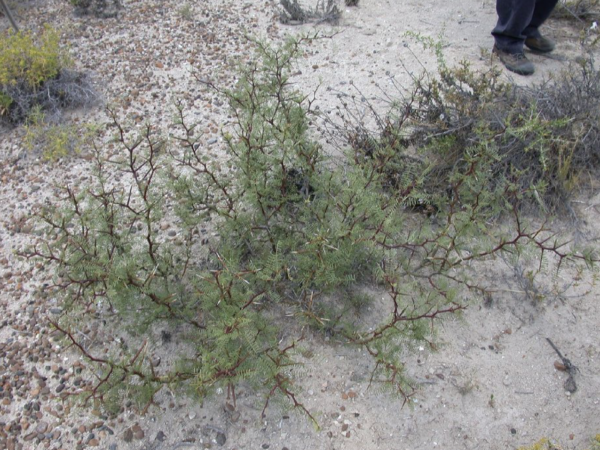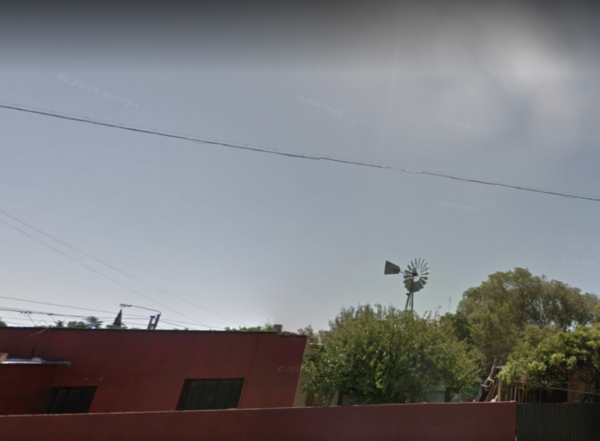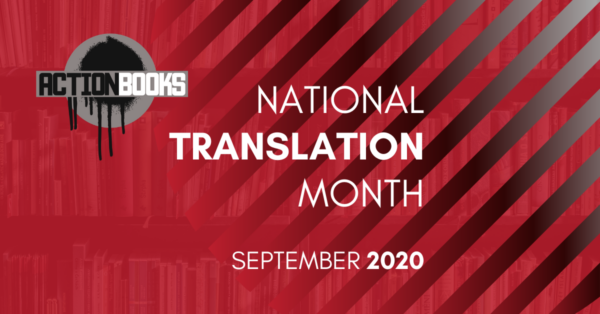rasgueo desnudo o canción nómade para cuerdas y olvidos
en la esquina violeta te sabía te pensaba llegando consumido yo
venía del temple de la muerte de mi muerte más fresca bien parido
de obsidiana lamida por la noche majadura del temple más sabido
más brotado de vena sin descanso de bordona de tripa enquetralido
condenado por flores misteriosas por guerreros de flor por flor
sin ruido sentenciado venía pensamiento en la esquina violeta y
desasido te encontré por pensarte y por pensada te di vida talvez
en un rasguido en un soplo de hueso sacrosanto en un aire de miel
enmortecido de florón de jardín petrificado de una rosa de pérfido
sonido en la esquina violeta te pensaba por pensarte despierto con-
fundido.
naked strum or nomad song for string and forgetting
on the violet corner I knew you I thought of you arriving consumed I
was coming from the temple of death of my death still fresh fine sprung
from obsidian licked by the thrashing night of the temple best known
best burst from the restive vein the bass string of guts kilned
condemned by mysterious flowers by flower warriors by flowers
sentenced soundlessly the thought was coming over on the corner violet and
untethered I found you in thinking of you and in thinking of you I maybe gave
you life in a screech in a sigh of sacrosanct bone in a honey air
soothed by the huge bloom by the petrified garden of a rose of perfidious
sound on the violet corner I thought of you in thinking of you awake con-
fused.
Tan huesolita que te ibas
tan envidiada de qué sombras la tierra ardía huesolita
la siesta ardía melodiosa tan como ibas tu sonrisa era
una piedra arrobadora y era otra piedra mi costilla
dulcequeamarga solasola cuajada de alta pedrería eran
tus voces tan palomas eran tus manos piedras finas
guitarra tan azuladiosa eras la piedra que acaricia pie-
dra ibas quién te roba última brisa de la brisa o
flauta mía o leja y rota tan huesolita que te ibas tan
de la gracia mucha y poca si cuando vuelvas ves mis
días oh piedra llena llaga
……………………hermosa!
So Bonely You Were Leaving
so coveted by shadows the earth burned bonely
the siesta burned melodietly as you your smile an
enthralling stone and my rib a second stone
sweetbitter onely clot of lofty stonery your
susurrations so dovely your hands fine stones
the guitar so blucidly you were stone against st-
one you were the thrall of a lull wind in the wind or
flute so mine mangled miles apart so bonely you were leaving so
by the grace of excess or scarcified and if when you come you see
my days oh stone boil bloated
……………………..beautiful!
Aquella vez irías calandria
cuello del cielo vos volando eras dijiste que te eras
que te aguardara los topacios yo te esperé tan en mis
ojos en mi espinura de alpataco que pasarías que pasabas
que mi salor era extrañado y yo me fui te fui
salido delante mío fui llegando antes de mí llegué
primero olor del cielo anaranjado ruido del viento humo
de nada llegué después oh solitario porque dijiste que
andarías que volarías con tus labios aquella vez piedra
en tu ala tu pié de nube no posado un duro pájaro
ruidoso calandria no era tu
……………………….topacio!
That Once You’d Go Mockingbird
neck of heaven you were flying said you were
that all that topaz awaited you I waited so long in my
eyes in my spine strung from the alpataco you passed were passing
that my oceanscent omissioned and I left I left you
flown right in my face arriving right in front of me I arrived
first waft of the sky ocher shriek of wind smoke
of nothing I arrived later oh solitary because you said that
you would walk that you would fly with your lips that one time stone
on your wing your foot of cloud not landed a hard bird
raucous mockingbird this was not your
…………………………………..topaz!
Here say : The alpataco is an indian / who sees from down deep, / sad, bitter, weathered, / for ever and for never.//Though sometimes it recurs to me / whistle, shriek, spark: / the alpataco / is a paisano who sings. —Bustriazo Ortiz]
Tu solasal aquella casa
en que escondías tus exilios un techo de aguas telarosas
un cielo húmedo maldito muebles polvosos oh papeles
deudos del tiempo tan roídos aquella casa vos subías
y yo detrás yo con tus libros tus caracoles tus tazones
tus asustados cacharritos aquella tristita y sola oh
codiciada tan de grillos tu corazón no me miraba tu
espalda blanca era los siglos ni repetir quise los dientes
la boca loca los sentidos porque sabía que no me eras
que tenía hombre tu escondrijo aquella vez aquella
oculta casa llovida qué
………………………amarillo!
Your So Lone Salt That House
where you stashed your exiles a roof of cobwebrose water
sky damp damned dusty furniture oh the paper
time’s second of kin so bitten that house you reared
and me right behind you with your books your snails your bowls
your scared little knickknacks all saddish and lonely oh
how coveted by crickets your heart would not look at me your
white back was centuries not to repeat I wanted your teeth
your mouth my senses crazed because I knew you were not me
that your hideout held a man that time that
shrouded house rained-on how
…………………….yellow!
Era mi vino como un pozo
y era aquel otro nidopájaro el pozo verde donde iba
como un desierto ennostalgiado y yo no sé qué me
bebía qué triste pócima qué largo corazón roto
………..[luzbrebaje
sombrabrebaje del callado que con las lunas se
tapaba su soledad de muerte y canto cerca mi casa
digo enfrente y yo en la tuya desalmado estoy diciendo
guacho de alma porque ella andaba vuelo largo el pozo
aquel de agua cautiva era su boca mi palacio
………..[emparronado
y rinconoso mi estar en vos mi estar remanso
por eso el vino cavadito yo me sentaba
……………………..delirando
It Was My Wine Like a Pit
and that other birdnest was the green pit where it went
like a nostalgized no-man’s land and I don’t know what I
drank what gloomy potion what long cracked heart
…………..[lightdraught
shadowdraught of the silent who used moons
to cowl their loneliness at death and I sing beside my house
I say in front and I and yours unsouled I’m saying
waif-soul because she was off on her long flight the pit
the one with captive water it was her mouth my palace
…….. …..[vined-over
and crazed with corners my being in you my being mute
and for that very reason the wine caved in a bit I sat
……………………..raving
contraoda en lloviente
esa mesa amarilla enlamparada esta llave de moza entresecreta
este cuero de marra cruzificado este hueso tortuga iguana yerta
este cuerno calchahue entreolítico esta lonca vizcacha en su madriguera
esta cola de piche raspadita este hombre al galope sin cabeza
esta guacha traída por paisano este tronco de sombra toraovera
este dulce farol renegridito este freno que a veces se desfrena
esta cosa que mata a la guitarra estos niños del útero sin breva
este horrendo revolver mataindios este frasco de sienes que se añejan
este libro de amores entre el humo este muerto grabado sin colmena
esta mía no mía que me huele oh la lluvia en su máscara dispersa!
counterode in rainfull
that lamplit yellow table this key of a girl midsecret
this martyred hide of a mara this rigored iguana turtle bone
this enterolithic Calchahuean horn this chief chinchilla in its hole
this rasp of a whistling duck this headless man at full gallop
this dagger packed by a peasant this hulk of bulldapple shadow
this dead honeyed headlight this brake that sometimes unbrakes
this thing killing the guitar these babes of a uterus with no breba
this vile indian-killer revolver this jar of graying temples
this book of lovers in smoke this cadaver engraved with no hive
this mine not-mine on my scent oh rain in its bedraggled mask!
A Brief En trance: La Pampa
In 2016 I flew to Santa Rosa, La Pampa, to read manuscripts by Juan Carlos Bustriazo Ortiz, an under-published, underground poet who had lived in that region of Argentina. There were at least sixty collections of poetry that I could not access in the capital or anywhere else.
Translation can feel like a departure—literally, to separate (into parts) or part (company)—from one’s own poems, own language, all kinds of ownness. But this departure returns to an earlier departure—resumes and redoubles the poem’s own act of separation (from the assurances of common place and common sense), its own rejection of comfort.
Translation departs, returns (poetry) to, its reject/ing state—thrown out, expelled, exiled into the threatening terrain of lack, uncertainty, openness.
What is a translated poem if not language stretched over a lack, a want? (To narrow/borrow from Kristeva’s definition of literature.)
These days I am thinking about translation as this en trance into an abject state (as opposed to civil or civic states)— into cast-off, marginalized, traumatized, and in-between spaces. Territories that shirk off official borders and definitions, that possess a resistant, insoluble strangeness. (And maybe my personal interest in translation comes from some inexplicable need, as a poet, to go there—to go nowhere, in particular.)
Bustriazo Ortiz wrote a poetry of this sort of place, though it was decidedly not a “poetry of place.” That label (rustic, folksy, a little naively fascist?) invokes the very borders, regionalisms, nationalisms, and defensive sentiments of local identity that his poems countervail.
Better: poetry out of place / in translation/ en pampa.

The word “pampa”—which names the flat, grassy, expansive landscape of the northern Patagonia—means a few things (to quote a footnote that I wrote in 2011): In the Southern Cone, the expression en pampa suggests a state of exposure or nakedness, or of being “without.” Its range of meaning covers: estar/quedarse en pampa: “to be flat broke”; “to come to nothing”; “to fall through.”
“En pampa y la vía,” in Buenos Aires, would mean: “in the middle of nowhere.”
Here say, by Andrés Ajens (my first introduction to Bustriazo):
poet of place, common
place, as we say now, and why not, no place. but,
but, flat out, on the pampa, warawara–
Pampa, loco incitato, in-verse, in truth,
bottoms-up, ushpallajta—knits st’
are dust.
My plane lands in a dust storm.
There could be no better en trance to this mapu.

“To come to nothing”
La Pampa was the site of the brutal Conquest of the Desert in 1880, where indigenous resistance was defeated militarily, beginning the systematic colonization by whites.
I’ve been reading a linguist’s history of the (language of the) region, as well as a dictionary of local toponyms and guide to the flora and fauna. Meeting these proper features, learning their Ranquelche names.
Learning these names helps me to imagine, most of all, (the expansiveness of a) loss. Loss of the meaningful features of a place, loss of proper connections to place. And this loss of place—puts me in my place? As if walking a very old map. The Ranquel word for land is mapu.
The alpataco bush grows half-buried, branches straight out of the sandy ground.
I commit to translating a language that is already half-buried, un-dead.
I have no plan for translating all the proper references, only a faint confidence that, merely by echoing them, I’ll locate a sense of their loss.
To translate from Timothy Morton’s notion of a dark ecology: making the commitment not to turn away from catastrophe, but to contemplate extinction, register grief.
In the wake of the colonial catastrophe, there is a space like what Kalliopi Nikolopoulou, writing about poetic elegy, calls “the gap between possibility and missing”: the space of a death that can’t be defined—because it is uncertain, or just too immense—and therefore can’t be grieved, or released by grief. This death remains present, always threatening to come alive.
“To be flat broke”
Abjection is economic, thus lyric. The tension between extremes of excess, vastness (the landscape, the number of his unpublished manuscripts) and scarcity is expressed in Bustriazo’s poetic exigency: the neologisms sourced from the “mashed up roots” of words, the borrowings of proper names. Scrapping language for parts, pulping it for essences, and raising questions of claim in the process.
By the time I leave Santa Rosa, I am carrying bags full of mimeographs, journals, books, manuscripts, audio recordings. I have plan for how to incorporate these stories, this richness of all the hearsay here—how to credit all these informal poetic executors, repay their gifts.
Here say: Bustriazo could be seen out walking the streets every day with a briefcase full of poems.

“To Fall Through”
(Trance lation)
Something about the wind and the way it drives the dust.
Reminds me of something someone said here about Bustriazo’s work as linotypist and proofreader for the local newspaper La Arena.
Something about the punctilious vastness of the landscape, its contradictions so intricate, intimate.
Driving where humid pampa of Toay fades into the dry pampa of Santa Rosa.
Here monotony produces things: sunstroke, insomnia, episodes of dizziness or blindness, also torpor and stupor…Time loses its weight, ceases to obey norms…—María Negroni, “Radiography of La Pampa.”
The abject state of trance?
It’s quieter down here. Not a world, only a sense. “Not” where you had been a moment ago…We can go this way, or another: both lead to the same field, the same open space… (Kristin Prevallet, Trance Poetics).
In trance lation, I’m not surprised to find myself thinking in the same terms as, and on the same page with, Zack Anderson’s recent piece on Édith Azam. Bustriazo and Azam share a violent “rejection of purity, containment, borders,” a broken syntax, verbal excess, and grinding repetitive style that teases, wears down resistances, calling to mind the penetrability of (the translator’s) interior experience.
In this hypnotic circle, where departure is also return, the interior is also the margin.
Her poems also induce in me a trance-like state because, afterwards, I can never remember how I translated her poems. (Don Mee Choi, On translating Kim Hyesoon)
As forgetting oneself, one’s place, losing one’s place, losing traction.
We approach another turn: translating now without transducting—that is, without reconducting, transporting, or restituting but, per haps, by simply clearing flat space in the open air, for the alter, with the utmost lack of proper (and appropriating) traction, flat-out on the pampa. (Andrés Ajens, my translation)
If translation dis-places—contextually, linguistically, temporally, personally, etc.—trance lation un-places. The poem. Un-places us. Maroons us without our usual resources and recourses in a space that is (for ever, for never) largely undefined (indigenous?).
What Derrida described as writing by crossing out, drawing in open space.
Trance lation as an un-zoning (out/in) of place, a passing out and also over (to the other side?)
Trance lation is here/tical not only because it crosses out, but because it draws in what is dis-possessed.
To trance late the late (poet’s) echoes, in the caved-in space of the poem en pampa.
(Trans séance?)
My wine, like a pit.
Here say: Bustriazo always covered his wine glass with a piece of paper or a book, to keep the spirits from escaping.
Juan Carlos Bustriazo Ortiz (1929-2010) was born and lived in the rural region of Santa Rosa, La Pampa, Argentina. His spatial and spiritual poetics tracks the residues of colonial violence in the landscape of the pampa. A fascinating underground figure, he wrote more than eighty manuscripts, most of which are coming into publication only after his death.
Michelle Gil-Montero is a poet and translator of contemporary Latin American poetry, hybrid-genre work, and criticism. She has translated several books, most recently Edinburgh Notebook by Valerie Mejer Caso (coming in 2021 from Action Books). Her book of poems Object Permanence (Ornithopter Press) was published in 2020. She is Professor of English at Saint Vincent College, where she directs the Minor in Literary Translation and publishes Eulalia Books (eulaliabooks.com).
